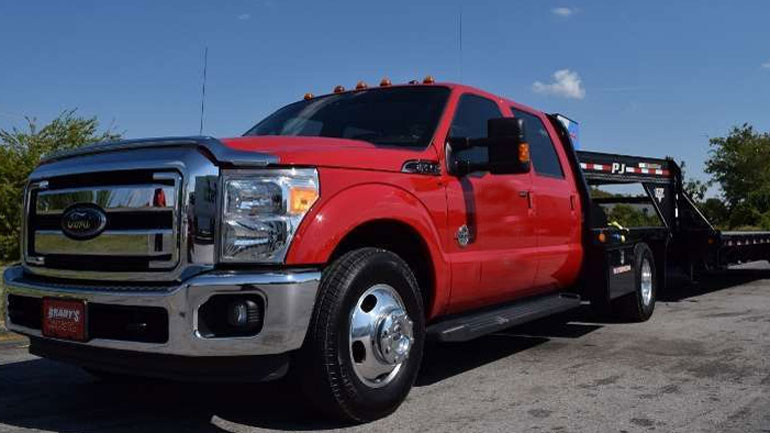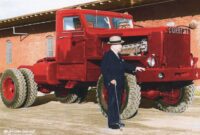Hauling Jobs For Pickup Trucks pickup.truckstrend.com
In an increasingly on-demand world, the humble pickup truck has emerged as a versatile workhorse, offering a unique blend of utility, accessibility, and entrepreneurial potential. For many, a pickup truck isn’t just a mode of transport; it’s a mobile business opportunity. Hauling jobs for pickup trucks encompass a wide array of services that leverage the vehicle’s cargo capacity and towing capabilities to transport goods, materials, and debris for individuals and businesses. These jobs represent a low-barrier-to-entry pathway into entrepreneurship, providing flexibility, direct income, and the satisfaction of solving real-world logistical challenges. Whether you’re a truck owner looking to monetize your vehicle or someone considering purchasing a pickup specifically for work, understanding the landscape of hauling jobs is the first step toward a potentially lucrative venture.
The Diverse World of Pickup Truck Hauling
Hauling Jobs For Pickup Trucks
The demand for hauling services is consistently high, driven by various sectors from residential cleanouts to commercial material deliveries. Here are some of the most common and profitable hauling jobs you can undertake with a pickup truck:
1. Junk Removal and Debris Hauling
This is arguably one of the most popular and straightforward hauling jobs. Homeowners, contractors, and businesses frequently need to dispose of unwanted items, construction debris, yard waste, or old furniture. Pickup truck owners can offer services to collect and transport these items to local landfills, recycling centers, or donation facilities. This niche often involves physical labor but can be highly rewarding, especially with effective marketing to local communities and construction companies.
2. Material Delivery Services
Landscapers, DIY enthusiasts, and small contractors often require timely delivery of bulk materials like gravel, mulch, topsoil, sand, wood, or even bagged concrete. A pickup truck with appropriate payload capacity can efficiently transport these materials from suppliers to job sites or homes, often for a fee that is more competitive than larger commercial delivery services.
3. Furniture and Appliance Delivery/Removal
Whether it’s a new couch from a private seller, an antique cabinet from an estate sale, or an old refrigerator needing disposal, many individuals and small businesses lack the means to transport large, bulky items. Offering pick-up and delivery or removal services for furniture and appliances fills this crucial gap, often requiring an extra set of hands or a dolly.
4. Small-Scale Towing and Transport

While not a heavy-duty tow truck, a pickup equipped with a robust hitch can handle smaller towing jobs. This could include transporting small utility trailers, boat trailers, jet skis, ATVs, or even assisting with moving smaller broken-down vehicles (e.g., via a car dolly, if permitted and within vehicle limits). Always ensure your truck’s towing capacity and legal requirements are met.
5. Errand and Courier Services (Large Items)
Beyond standard package delivery, there’s a market for transporting oversized items that don’t fit into a regular car but aren’t large enough to warrant a freight truck. This could involve picking up large online marketplace purchases, delivering specialized equipment for events, or transporting large art pieces. This niche requires reliability and careful handling.
6. Farm and Agricultural Support
In rural areas, pickup trucks are indispensable. Hauling jobs might involve transporting feed, small livestock (in appropriate carriers), farm equipment, harvested produce, or supplies between farms or to markets. This often requires knowledge of agricultural needs and flexible scheduling.

7. Event and Festival Logistics
Event organizers frequently need assistance transporting equipment, staging materials, tents, chairs, sound systems, and other supplies to and from venues. A pickup truck can be an agile solution for these logistics, especially for smaller community events or private parties.
The Undeniable Benefits of Hauling with a Pickup
Leveraging a pickup truck for hauling jobs offers a compelling set of advantages:
- Versatility: Pickups can handle a wide range of cargo types and sizes, from bags of mulch to construction debris, making them adaptable to various job requests.
- Lower Overhead: Compared to purchasing and maintaining larger commercial trucks or trailers, the entry cost for a pickup truck hauling business is significantly lower, leading to quicker profitability.
- Accessibility and Maneuverability: Pickups can navigate tighter residential streets, driveways, and urban environments that are inaccessible to larger delivery vehicles, broadening your potential client base.
- High Demand: The need for hauling and transport services is constant across residential, commercial, and industrial sectors, ensuring a steady stream of potential work.
- Flexibility and Autonomy: As an independent hauler, you set your own hours, choose your jobs, and dictate your earning potential, offering a highly flexible work-life balance.
- Scalability: You can start small with just your truck and gradually expand by investing in additional equipment, hiring help, or even acquiring more vehicles as your business grows.

Essential Equipment and Vehicle Requirements
To operate a successful and safe hauling business, your pickup truck needs to be properly equipped and maintained:
- Vehicle Maintenance: Regular oil changes, tire rotations, brake checks, and suspension inspections are paramount. Heavy hauling puts significant stress on a vehicle, so a well-maintained truck is crucial for reliability and safety.
- Payload and Towing Capacity: Understand your truck’s specific limits. Overloading is dangerous and can lead to costly damage or accidents. Consult your owner’s manual for Gross Vehicle Weight Rating (GVWR) and Gross Combined Weight Rating (GCWR).
- Truck Bed Protection: A durable bed liner (spray-in or drop-in) protects your truck’s bed from scratches, dents, and corrosion, preserving its value and functionality.
- Tie-Downs and Straps: High-quality ratchet straps, bungee cords, and cargo nets are non-negotiable. Securely fastening your load prevents shifting, damage, and road hazards.
- Tarps: Heavy-duty tarps are essential for covering loose materials (like mulch or gravel) to prevent spillage during transport, and for protecting items from weather.
- Safety Gear: Gloves, safety glasses, sturdy work boots, and reflective vests protect you from injuries, especially when handling heavy or sharp objects.
- Loading Aids: A heavy-duty dolly or hand truck is invaluable for moving appliances, furniture, and other bulky items. Ramps (folding or fixed) can assist with loading wheeled equipment or heavy items.
- Trailer Hitch and Wiring (Optional but Recommended): Even if you don’t plan on large-scale towing, a reliable hitch expands your capabilities for small trailers or car dollies. Ensure proper electrical wiring for trailer lights.
Getting Started: A Step-by-Step Guide
Launching your hauling business requires more than just a truck. Here’s a roadmap:
- Assess Your Truck and Skills: Understand your truck’s capabilities and your own physical limits. Decide what types of hauling jobs you’re comfortable and capable of performing.
- Business Planning and Niche: Define your target market (residential, commercial, specific industries) and specialize if possible (e.g., "eco-friendly junk removal," "landscaping material delivery"). This helps focus your marketing.
- Legal and Insurance:
- Business Registration: Register your business name with your state or local authorities. You might need a DBA (Doing Business As) or an LLC (Limited Liability Company).
- Commercial Auto Insurance: Your personal auto insurance policy likely won’t cover commercial activities. Invest in commercial auto insurance that covers liability, collision, and comprehensive damage while you’re working.
- General Liability Insurance: This protects you from claims of bodily injury or property damage that occur during your operations (e.g., accidentally damaging a client’s driveway).
- Permits: Check local ordinances for any specific hauling or waste disposal permits required.
- Pricing Strategy:
- Hourly Rate: Common for jobs where the time commitment is unpredictable.
- Per-Job Flat Rate: Ideal for specific, well-defined tasks like furniture delivery.
- Volume/Weight-Based: Often used for junk removal (e.g., by truckload, by cubic yard).
- Mileage/Distance-Based: Add a fuel surcharge or a per-mile rate for longer distances.
- Research competitor pricing in your area to ensure you’re competitive yet profitable.
- Marketing and Client Acquisition:
- Online Presence: Create a simple website or a strong social media presence (Facebook, Instagram, Google My Business). Post photos of your truck and completed jobs.
- Local Advertising: Use flyers, local classifieds, or community notice boards.
- Online Marketplaces/Apps: Register on platforms like TaskRabbit, GoShare, Dolly, or local moving/hauling apps.
- Networking: Connect with contractors, real estate agents, property managers, and landscapers who often need hauling services.
- Word-of-Mouth: Provide excellent service to encourage referrals.
- Customer Service: Be punctual, professional, communicative, and reliable. A good reputation is your best asset.
- Safety First: Always prioritize safety for yourself, your clients, and your vehicle. Secure loads properly, follow traffic laws, and use appropriate personal protective equipment.
Important Considerations and Potential Challenges
While rewarding, a hauling business comes with its own set of challenges:
- Fuel Costs: Fuel is a significant ongoing expense, especially with heavy loads. Factor this into your pricing.
- Vehicle Wear and Tear: Hauling accelerates vehicle depreciation. Budget for increased maintenance, tire replacement, and potential repairs.
- Competition: The market can be competitive. Differentiate yourself through specialization, superior customer service, or competitive pricing.
- Regulations and Disposal Logistics: Understanding local landfill rules, recycling guidelines, and potential hazardous waste regulations is crucial. Disposal fees can eat into profits.
- Physical Demands: Many hauling jobs are labor-intensive, requiring lifting, bending, and stamina.
- Weather Conditions: Inclement weather can impact operations, requiring careful planning and potentially specialized equipment (e.g., snow chains).
Tips for Success
- Specialize Early: Becoming an expert in one or two specific types of hauling (e.g., construction debris only, or just appliance removal) can make you the go-to provider in that niche.
- Invest in Quality Equipment: Durable straps, tarps, and dollies are investments that pay off in efficiency and safety.
- Prioritize Customer Service: Punctuality, clear communication, and a friendly demeanor will set you apart and lead to repeat business and referrals.
- Build an Online Presence: Even a simple Google My Business profile with good reviews can attract significant local traffic.
- Track Everything: Keep meticulous records of income, expenses (fuel, maintenance, disposal fees), and mileage for tax purposes and financial planning.
- Network Constantly: Forge relationships with other local businesses that might need or refer hauling services.
Estimated Pricing Table for Hauling Jobs (Disclaimer: Estimates Only)
Pricing for hauling jobs varies significantly based on location, type of material, volume/weight, distance, time, and specific services offered. The following table provides general estimates and should be used as a starting point for your own market research. Always provide a clear quote after assessing the job.
| Service Type | Pricing Model | Estimated Price Range (USD) | Notes



